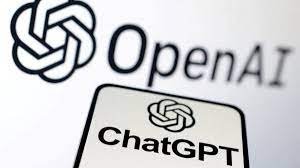OpenAI unveiled a groundbreaking marketplace, marking a significant expansion of its consumer-focused initiatives. The platform enables users to access personalized artificial intelligence “apps” designed for various tasks, such as teaching math or creating stickers. The announcement was made during OpenAI’s inaugural developer conference, which attracted 900 developers worldwide.
CEO Sam Altman presented the latest updates at the event, highlighting the growing popularity of ChatGPT, which now boasts 100 million weekly active users since its November 2022 launch.
OpenAI introduced these personalized AI apps as “GPTs,” early iterations of AI assistants capable of executing real-world tasks, like booking flights on behalf of users. To facilitate the growth of this ecosystem, OpenAI will launch a GPT Store, allowing people to share their GPTs and earn money based on the number of users. This move builds on OpenAI’s previous efforts to establish a ChatGPT plugin ecosystem.
Altman emphasized the vision of a future where users can request assistance from their computers to complete various tasks, ultimately automating numerous activities. He stressed the importance of a gradual and iterative approach to ensure the safe development and deployment of AI.
The conference also featured several developer-focused updates. OpenAI introduced a more cost-effective model, GPT-4 Turbo, which is significantly cheaper and capable of processing more data than its predecessor. New assistant application programming interfaces (APIs) with vision and image modalities were announced, along with a beta program for developers to fine-tune GPT-4 models.
The updates were met with enthusiasm, as developers anticipate reduced costs and enhanced capabilities. Flo Crivello, the founder of AI assistant startup Lindy, highlighted the substantial cost reduction that will benefit startups. He also acknowledged the possibility of competition with OpenAI’s upcoming GPT bots, emphasizing the “complicated” relationship between startups and OpenAI.
Altman encouraged startups to explore deeper integrations with OpenAI technology, emphasizing the added value of such collaborations. He envisions a future where individuals have multiple GPTs that can work together to accomplish tasks.
OpenAI aims to attract more enterprises and developers to build models that rival those of industry players like Anthropic and Alphabet’s Google. The company also competes with Microsoft for enterprise customers. Satya Nadella, CEO of OpenAI backer Microsoft, reiterated Microsoft’s commitment to supporting the development of foundation models and the provision of extensive computational resources.
OpenAI addressed the concerns of large enterprises by launching the Custom Models program, which offers to create custom GPT-4 models at an “expensive” price. To further support enterprise users, OpenAI matched offers from Google and Microsoft by covering legal costs related to copyright infringement claims.



